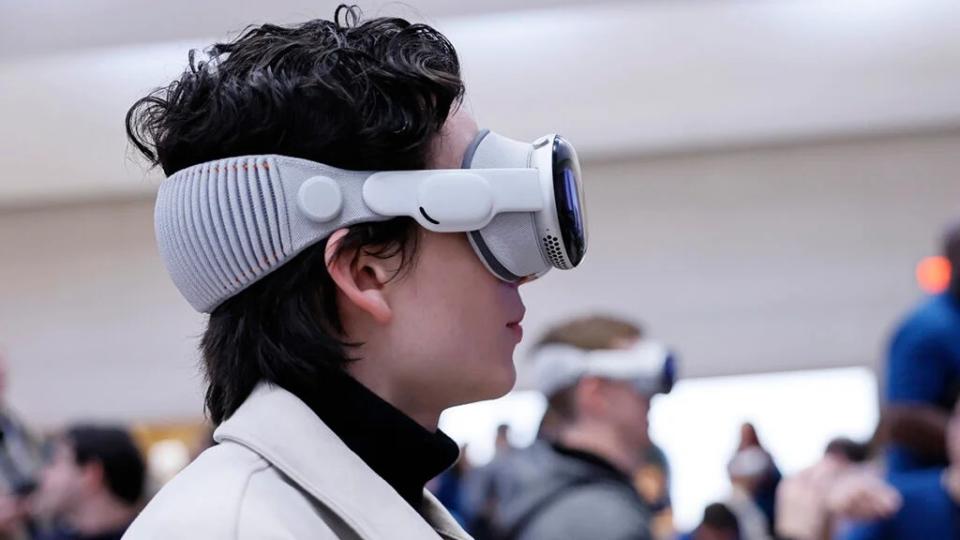After ‘Argylle’ Bust, Apple’s Theatrical Strategy Remains a Cipher | Analysis
Four months ago, Apple began its new strategy of bringing films with big budgets to theaters with the help of studio partners. Now it is facing its first major stumble in this pricey campaign with Matthew Vaughn’s “Argylle,” the spy-action film which suffered a thudding $17.4 million domestic opening weekend and barely cracked $1 million in grosses on Monday.
Despite being ostensibly a more crowd-pleasing film, “Argylle” posted a lower opening than Apple’s darker awards plays “Killers of the Flower Moon” ($23.2 million opening) and “Napoleon” ($20.6 million over three days on Thanksgiving weekend). None of these films is likely to recoup their costs of over $200 million each.
Is Apple getting its money’s worth from these big investments? And will the belly flop by “Argylle” affect Apple Films’ theatrical plans going forward?
The answers are hidden behind the opaque curtain of the streaming world. As a tiny division of a Silicon Valley behemoth that has a $2.89 trillion market cap – yielding $119.6 billion in revenue last quarter – Apple Films doesn’t have to play by the same rules as legacy studios. As a business, it certainly does not add up at face value.
“We have such little insight into how the math makes sense for Apple and, for that matter, Amazon, as their media divisions are part of these vast portfolios,” Boxoffice editor Daniel Loria said.
“Argylle,” which features an ensemble cast led by Bryce Dallas Howard and Henry Cavill, was self-financed by Vaughn’s production company Marv and acquired by Apple for what an individual with knowledge of production confirmed to TheWrap was about $200 million. The studio, which partnered with Paramount in distributing “Killers of the Flower Moon” in theaters and with Sony on “Napoleon,” entered a distribution deal on “Argylle” with Universal that sources tell TheWrap saw the two studios share the cost of its $80 million marketing budget.
The box office runs of “Flower Moon” ($156.7 million global) and “Napoleon” ($219.3 million global) could be seen as investments that would bear fruit for Apple later down the road. Working with directors Martin Scorsese and Ridley Scott on such dark, mature, true-story dramas signaled to the public and creatives that Apple was in the business of releasing thoughtful, original cinema from world-class filmmakers.
Long-term, it seemed, that strategy could lead to more partnerships with filmmakers and boost Apple TV+’s chances of growing and maintaining its subscriber count. It also comes at a time when Netflix is pulling back on its spending on original film production with the impending departure of film chairman Scott Stuber, who had championed the importance of theatrical release to little success.
“Argylle,” however, isn’t a mature drama. It’s a PG-13 action film about an author who discovers her books have impact on the spy underworld that is meant to charm audiences with action and humor and potentially launch a new franchise. In fact, the film reveals at the end that it is connected to Vaughn’s “Kingsman” franchise — effectively making it a backdoor spinoff — while a post-credit scene teases a prequel called “Argylle: The First Book.”

But audiences seem lukewarm at best about more “Argylle.” The film’s Rotten Tomatoes scores stand at 34% for critics and 70% for audiences, while its CinemaScore grade from opening-night audiences was a C+, the lowest of Vaughn’s career. Such tepid word-of-mouth is unlikely to build interest in seeing “Argylle” in theaters or on Apple TV+, which would leave it as a costly flop for Apple.
Apple’s black box
Apple TV+ is just one part of a huge portfolio that makes up Apple Services, a division of the company that includes Apple Music, Podcasts, and the App Store, among many others. During last week’s earnings call, Apple CEO Tim Cook boasted that Apple Services has more than 1 billion subscriptions combined within all its offerings. But the company did not disclose exactly how many of those subscriptions came from Apple TV+ and it has not disclosed numbers for the service over the past year.
Ahead of its launch in 2019, Apple TV+ planned to spend more than $6 billion on original shows and movies, according to the Financial Times.
Five years later, Barclays, in a research note last month, estimated the streamer is losing $6 billion a year “given the lack of scale and high cost of content.” Barclays did not respond to TheWrap’s outreach to better understand the math behind their estimate. And spokespersons for Apple did not return TheWrap’s requests for comment about Barclays’ estimates.
If Apple’s lack of transparency about the platform’s performance continues there will be no publicly available information on how many subscribers joined Apple TV+ to see “Killers of the Flower Moon” — nominated for 10 Oscars — after it hit the streaming service last month. Nor will we see how future Apple films distributed in theaters by legacy studios affect interest in the service. The only clue we may get could be from Nielsen’s streaming ratings, which will reflect the Jan. 12 debut of “Killers of the Flower Moon” later this week.
“As secretive as Netflix could be, their main goal was still clear: Boost subscriptions and reduce churn by making their service the only place to see their titles beyond a one-week theatrical run for some of their films,” Loria said. ”With Apple, we don’t know what they value most, whether its relationships with filmmakers, prestige, or hoping all of this starts turning a profit in the long haul.”

For now, one Apple insider tells TheWrap that the company is committed to its theatrical strategy for the foreseeable future, and theaters will be happy to take whatever the company provides them. Two such films will be released in theaters by Sony in the third quarter: an untitled Greg Berlanti rom-com set during the 1960s space race starring Scarlett Johansson and Channing Tatum, set for a July 12 debut; and the Jon Watts-directed thriller “Wolfs” starring George Clooney and Brad Pitt, scheduled for Sept. 20.
Neither film is likely to make a significant chunk of cash. But with the 2024 release slate lacking in both sheer quantity and surefire franchise hits, every film that can add to the bottom line for theaters will be welcome.
But it likely won’t be known for months, possibly until 2025 or beyond, whether Apple feels like their current strategy with theaters is worth continued investment or if it will be reduced to producing lower-cost films — or abandon theaters altogether. As Loria points out, when a company is as profitable as Apple, it can afford to let things play out longer than most.
Beyond its film division or Apple TV+, the tech behemoth is focused on making its latest device a success. Last week, Apple launched the $3,500 Vision Pro mixed-reality headset. The company says it has spent billions designing the tech for the product, its first new device since it launched the Apple Watch in 2015.
Apple clearly plans to leverage content from Apple TV+ to pump up sales of the headset. It has recruited directors like Jon Favreau to design content for Vision Pro, with the “Iron Man” director brought on to bring the dinosaurs from his Apple TV+ show “Prehistoric Planet” to life. Before launch, Apple also touted the 150 3D movies it will feature initially, which will include movies from Prime Video and some of Disney’s Marvel and Star Wars franchises.
With such significant spending to bring in major Hollywood talent and brands onto a fledgling VR product, the risk of investing in theatrical releases and high budget levels to attract big name filmmakers may be comparatively smaller.
“At least the importance of theatrical to elevating awareness of a film has been proven,” Loria said. “This film strategy isn’t even the biggest risk Apple is taking right now.”
The post After ‘Argylle’ Bust, Apple’s Theatrical Strategy Remains a Cipher | Analysis appeared first on TheWrap.


